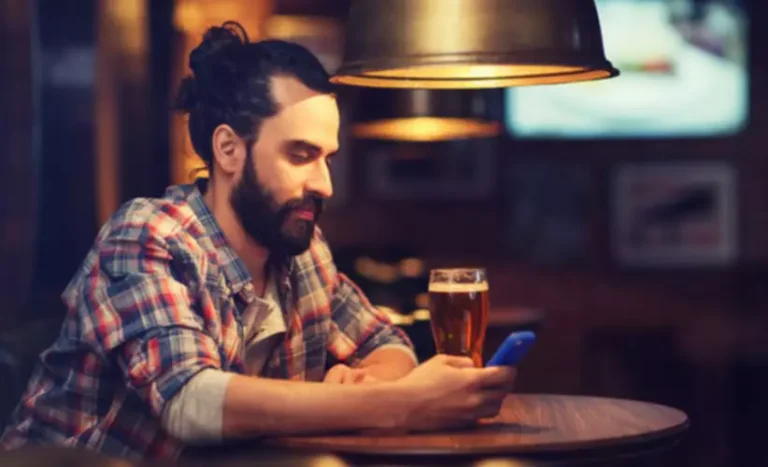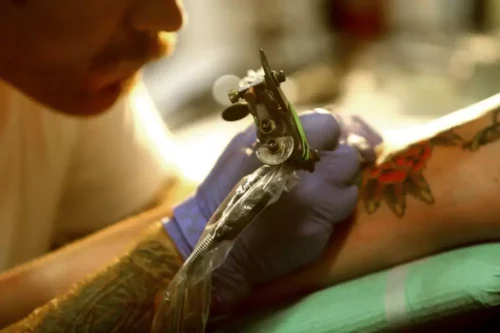
Alcohol interrupts this process, causing abnormalities in how circadian hormones are released. Studies have shownthat when you get up the next day, you may be less alert because of your drinking the night before, even though you no longer have alcohol left in your body. Having bulletproof sleep hygiene can also help you fall and stay asleep, and this is even more important if you’ve had a drink. RISE can tell you when to do 20+ sleep hygiene habits at the time that makes them the most effective for you. If you don’t want to give up booze altogether, try avoiding it at least three to four hours before bed and limiting how much you drink. We’ve covered more on how long before bed to stop drinking alcohol here.
- It’s likely that most people reach for the hard stuff to help them sleep because alcohol, for all intents and purposes, is a sedative.
- That’s because alcohol interferes with the ability to stay asleep and to get high-quality, deep sleep.
- Caffeine, a stimulant found in some cocktails, can increase alertness and delay the onset of sleep, further disrupting sleep quality.
- The circadian disruption that can result from alcohol consumption contributes to leaky gut syndrome, according to research.
- Even moderate amounts of alcohol in your system at bedtime alters sleep architecture—the natural flow of sleep through different stages.
Medical Professionals
If co-occurring substance use and insomnia are causing problems in your life or the life of a loved one,reach out to a representativeto begin the journey towards recovery. Stayingphysically activeduring the day can help you fall asleep at night, as well as promote overall health. Doctors have found that on its own, alcohol can narrow your upper airway and lead to sleep apnea problems, even if you have never had them before. In a normal circadian rhythm, hormones are released at certain times throughout the day.
- A spoonful of honey, some honey slathered on toast, or even a banana will provide you simple, easy-to-break down sugars to fuel the body’s breaking down of alcohol through the night.
- Consider using room-darkening shades, earplugs, a fan or other devices to create an environment that suits your needs.
- Falling asleep and getting a full night’s rest are real problems that need to be managed effectively to maintain sobriety.
- REM sleep has a restorative effect and plays a role in memory and concentration.
- Binge drinking occurswhen a man has five drinks, or a woman has four drinks within two hours.
Disrupts the Sleep Cycle
If you have a restless night after a drink or two, you might reach for an extra cup of coffee the next day to combat daytime sleepiness. If you’ve had a lot to drink, you might even have a hangover to contend with the next night, which won’t make sleeping any easier. Have one last small glass of water before bed, then fill a glass to keep on your nightstand in case you get thirsty later. Don’t drink too much water—you’ll just wake up through the night to go to the bathroom, time you could be sleeping.
Double Your Impact

Improvements in sleep can vary from person to person, but many people notice changes within a few days to a couple of weeks after reducing their alcohol intake. Without alcohol, you’re likely to experience more restful sleep and find it easier to fall asleep and wake up feeling refreshed. It’s a sedative, so it can send you into a deep sleep quickly—but that’s not what’s supposed to happen. In other words, it throws off the first two stages of light sleep, and it can be difficult for your body to readjust during the remainder of the night.
Pay attention to what you eat and drink

While drinking alcohol before bedtime may help you feel relaxed and sleepy, enjoying a nightcap puts you at risk of experiencing repeated wakings and low-quality sleep later in the night. Alcohol use and dependence appear to interfere with circadian rhythms—biological patterns that operate on a 24-hour clock. Evidence suggests that consuming alcohol may decrease the body’s sensitivity to cues, like daylight and darkness, which trigger shifts in body temperature and secretion of the sleep hormone melatonin. These fluctuations play a vital role in the sleep-wake cycle, and when they are weakened—or absent—a person may feel alert when they want to sleep and sleepy when they want to be awake. When you have sleep apnea, drinking canmake the breathing interruptions last longerwhen you are asleep, leading to more awakenings.
Why You May Feel Tired the Day After Drinking Alcohol
- Alcohol often does reduce sleep onset latency—the time it takes to fall asleep.
- It’s best to cut off drinking alcohol at least four hours before bedtime.
- They may believe it reduces their anxiety over the day’s events and helps them get to sleep.
- Moreover, alcohol can reduce the time spent in one sleep cycle while increasing the time spent in another.
However, the initial drowsiness alcohol causes can be deceiving. Alcohol disrupts sleep quality throughout the night, leading to less restful and restorative sleep. It’s likely that most people does alcohol help you sleep reach for the hard stuff to help them sleep because alcohol, for all intents and purposes, is a sedative. And no one will argue that it can shorten sleep latency (the time it takes you to fall asleep).

The circadian disruption that can result from alcohol consumption contributes to leaky gut syndrome, according to research. For people who snore or who have sleep apnea—a disorder that causes repeated pauses in breathing during sleep—drinking alcohol tends to aggravate symptoms. In another part of the study, the researchers also investigated the effect of alcohol withdrawal on sleep. They found after extended periods of binge-drinking, sleep came quickly as expected, but within a few hours, wakefulness set in, preventing a return to sleep.
Make your bed welcoming for when you get home
While everyone metabolizes alcohol a bit differently, the best way to ensure that booze doesn’t harm your sleep is to avoid it entirely or drink it earlier in the day—at least 4-6 hours before bedtime. Switching over to low- or no-ABV options closer to bedtime may also help keep REM sleep intact (just watch out for added sugars). During REM sleep—which usually starts 90 to 120 minutes after falling asleep—we form and consolidate memories1, sharpen motor skills, and process emotions. We spend more time in REM sleep during the second half of the night, when the effects of pre-bed alcohol seem to be at their strongest.

Alcohol and Insomnia: That Nightcap Might Keep You Up at Night
Regular drinking has also been linked to shorter periods of rapid eye movement (REM) sleep, a disrupted circadian rhythm, and snoring. Many people turn to a nightcap, like a glass of wine or cocktail, as they wind down at the end of the day, often believing it might help them sleep better. However, the effects of alcohol on sleep are more complex and significantly less beneficial than you might think.
